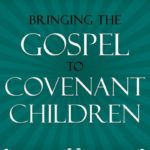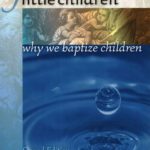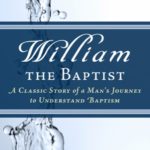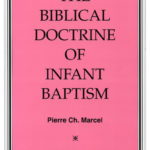Earlier this year, Westminster Theological Seminary awarded Sinclair Ferguson and Tim Keller honorary doctorates. As part of the ceremonies, Peter Lillback hosted a conversation with Ferguson and Keller. The panel is edifying in every way.
Category Archives: Miscellaneous
Reasons for Thanksgiving
In 2015, I began my Ph.D. at what I affectionately call The Institution. It was one of the best decisions I’ve made. Model pastor-theologians fill the faculty, the student community is gracious and earnest, and the confessional unity is palpable.
All of those are, in human terms, consequences of Dr. Albert Mohler’s leadership. Southern recently produced a beautiful fifteen-minute video* documenting Dr. Mohler’s first twenty-five years of faithfulness. Watch it and give thanks.
*I make a brief appearance at 14:23.
Three Years Later (Reflections on Graduation Day)
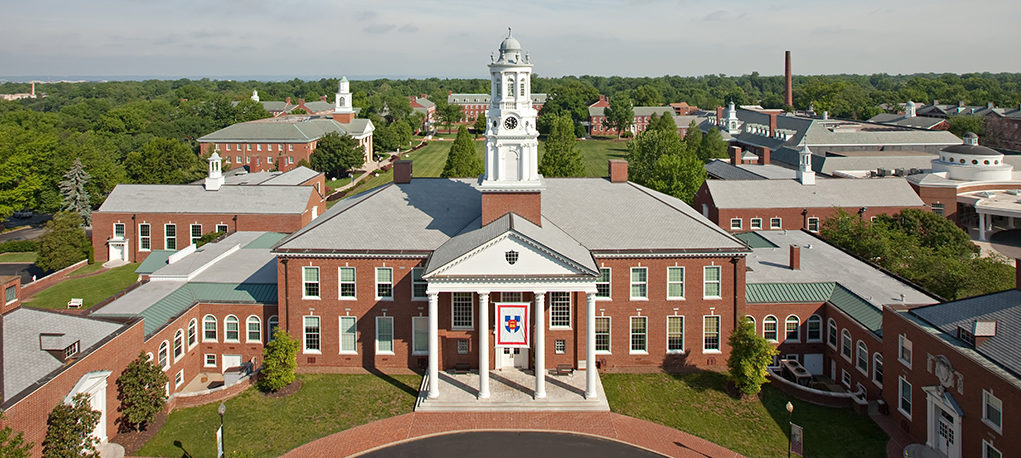
Three years ago, I began my Ph.D. studies at The Institution. Eight seminars, four colloquia, two research languages, two sets of comprehensive exams, and one dissertation later, I’m finally finished. Sometime after 11:00 a.m. EST this morning, I’ll walk across the stage to receive my doctoral hood and degree. What a satisfying joy it shall be.
In no particular order, here are a series of reflections and lessons learned after my time at SBTS.
20 Takeaways and Tell-Alls
- If you’re married and decide to do any graduate or post-graduate work, make sure your wife understands—and welcomes—the sacrifice your studies will require. I could never have done it all without my wife’s skill at home.
- If you’re in ministry and decide to do any graduate or post-graduate work, make sure you live your studies before your congregation. Faithful studies should always increase your ability and humility. Put 1 Timothy 4:15 into practice. Demonstrate your progress in Christ before their watching eyes.
- An interested and able supervisor makes all the difference. Dr. Yuille has been a grace in my life.
- I entered the Ph.D. program intimidated at all the required writing. After my first seminar, I dreaded all writing projects. Now, few things get me as excited as putting pen to paper.
- Of all the seminary discussions I had to lead, my favorite to prepare for was on Dietrich Bonhoeffer.
- Of all the seminary discussions I had to lead, my least favorite was on Eusebius of Caesarea.
- The worst book I had to read for a seminar was Weaving the Visions. Stay away, my friends, stay away.
- My personal favorite textbook was Puritan Spirituality: The Fear of God in the Affective Theology of George Swinnock. It’s (probably) the best scholarly summation of Puritan piety you’ve never heard of.
- Few things are as essential to diligent research work than a fascination with your dissertation subject.
- If you can, pick a dissertation subject that appeals to more than just your mother and advisor.
- Good Christian writing depends on good Bible reading.
- Pray for God’s blessing on your studies.
- The academy thrives on novelty and originality; pastoral ministry doesn’t.
- Discover what time during the day you read and write best, and guard it with all vigilance.
- A few good friends in seminary will sustain you through those days and nights when you want to give up.
- Doctoral studies are a boot camp in humility. You’ll never be the smartest scholar in the room.
- My studies seem to have forever altered my reading habits. I’m more content than ever not to read books cover to cover—for better or worse.
- Life in the seminary world is dangerous. You can quickly forget that there’s a whole wide world off campus that doesn’t care much about your studies.
- Louisville has really, really good food. I have many fond memories of student lunches at Joella’s Hot Chicken.
- I always thought I’d feel different when I finally finished the degree. I don’t. I’m still just a plain old pastor, husband, and father.
The Dissertation is Done

March 16, 2018 was a most momentous day. I turned thirty-four years old. I also received the best birthday present I could’ve hoped for—a “passed” dissertation. My thirty or so years of non-stop education has (finally) reached its conclusion. People tell me I’m supposed to be an expert, seeing that I’ve completed four degrees. I’m learning, however, that the title of “novice” is much more appropriate than “Doctor.”
Reading, Researching, and Writing
I began my Ph.D. studies at The Institution in January of 2015. From the start, my research interest was Robert Murray M’Cheyne. I initially planned to study “The M’Cheyne School” of ministers in the Free Church of Scotland. But the more I read and researched the more I realized how a thorough study of M’Cheyne’s piety was needed. His brief life has left a long legacy. His story continues to influence countless people over two hundred years after his birth. His pithy quotes on doctrine and spirituality saturate books on all manner of subjects from all kinds of Protestant traditions.
In the spring of 2016, I recognized how the prevailing narrative around M’Cheyne’s life is somewhat miscast. He’s commonly portrayed as a model of personal holiness. Said another way, his devotion to the means of grace is what most captivates Christians. Therefore, the existing studies on M’Cheyne focus on how he pursued the means of grace. I believed a more foundational question needed asking and answering: “Why did M’Cheyne pursue holiness with such singular passion?”
So, I got to work.
The fruit of my research is a dissertation titled “A Communion of Love: The Animating Principle Behind the Christocentric Spirituality of Robert Murray M’Cheyne.” The title encapsulates my thesis, which states, “The primary objective of this dissertation is to demonstrate the crucial place that love for Christ occupies in M’Cheyne’s spirituality.” Over the course of ten chapters, I argue that M’Cheyne’s theology centered on knowing God’s love in Christ and that his piety was little more than the return of love to Christ. His holiness shined brightly because he loved Christ so deeply.
Nervous and Anxious
I began writing the dissertation in July of 2017. I submitted it to my examining committee seven months later on Valentine’s Day. The readers were all men whom I’ve looked up to for many years: Drs. Stephen Yuille, Tom Nettles, Michael Haykin, and Sinclair Ferguson. Each man has proved himself an eminent scholar throughout the process and, even more importantly, a model of godliness.
When I left for Louisville on March 15th to defend the dissertation, I went with a feeling I’ve rarely experienced—nervousness. Outside of being in situations with heights (we are not close friends), I don’t know if I’ve ever been nervous about something. But I was a bundle of nerves as I entered the Haldeman Room at 8:00 a.m. on the 16th. Gratefully, the committee was quite encouraging, and the defense went better than I’d anticipated. It was one of the happiest days of my life (which my family says you can see in my smile below).
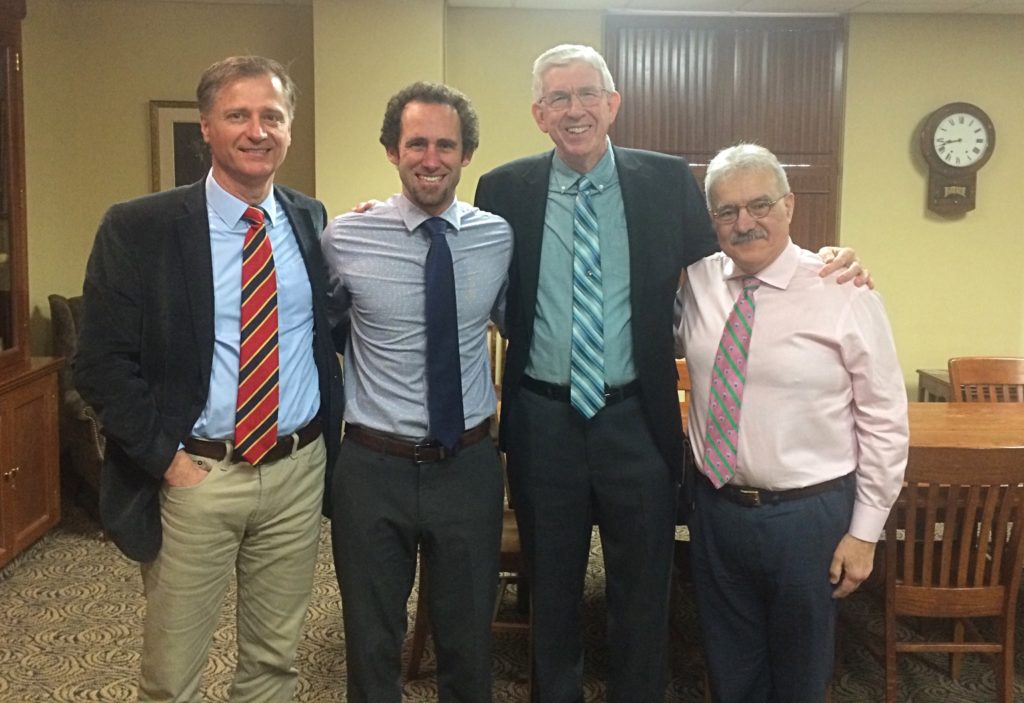
Mastered By, Not Mastering
Someone told me last week, “You’re the M’Cheyne expert now!” I’m not even close. My studies have only proved how far I have to go to be even a small reflection of M’Cheyne’s faithfulness.
I believe M’Cheyne is an unusually compelling example for pastors. I long to see a revival of his ministerial model, one built on an adoration of Christ that promotes humble piety and zealous soul-winning. In the coming years, I hope to publish a few different works on M’Cheyne, all aimed at retrieving his simple, yet powerful pattern for gospel ministers.
A New Call in Ministry
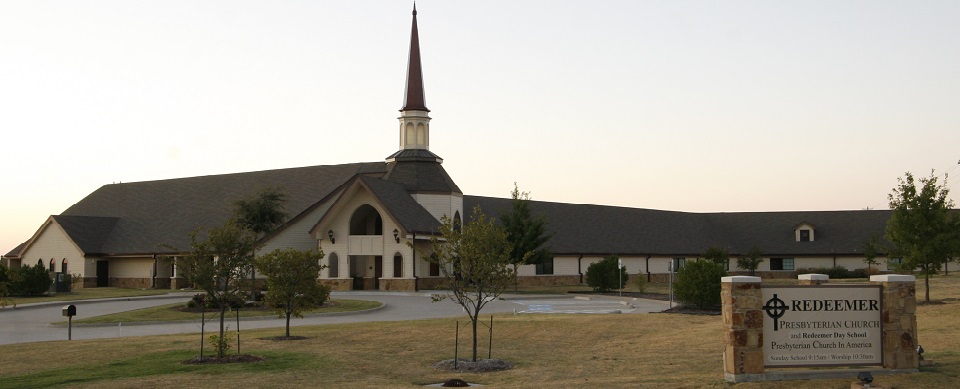
This blog space has been rather silent the last few months. But the Lord has been at work. Perhaps it’s because He’s been doing so much in my life that I haven’t had any time to slow down and put together a personal update.
Today seems like a wise time I do so. For yesterday—Sunday, November 12—I was installed as the Senior Pastor of Redeemer Presbyterian Church (PCA) in McKinney, TX.
Our journey to Redeemer has been a most surprising one.
Expect the Unexpected
When I resigned as pastor at IDC, we expected God would send us out of Texas for our next calling in ministry. There were opportunities to plant a PCA church in North Texas, but we didn’t believe planting another church was what the Lord desired for us. So, as no existing PCA churches in NTX were looking for a senior minister, I began the process of sending my information to a few churches in other parts of the country. Many of the contacts came through friends and brother ministers in the PCA. Over the course of six to seven months, several intriguing possibilities came to fruition. By August 1, I was a final candidate at a couple of churches, and we were spending most of our time praying through where the Lord wanted us to serve.
Then Redeemer’s search committee asked if I’d be willing to sit down and interview with them for their senior pastor position.
A Script Only God Can Write
At the beginning of this year, Bryant McGee resigned his position as senior minister of Redeemer after seventeen years of productive and healthy ministry. He ran his race with grace and fought the good fight in the Lord’s service. He’s now helping labor in a family business. A friend of mine submitted my information to the search committee at Redeemer sometime in the middle of the spring. The search committee decided to pass on considering me, which I wasn’t terribly surprising. I was, after all, still pastoring in a Baptist church—albeit in an interim/caretaker capacity.
As we transitioned away from life and ministry at IDC, we began attending, and ultimately joining, Redeemer. It is the closest PCA church to our home, we had many friends there, and we genuinely loved the church’s worship and ministry vision. Since May of this year, Redeemer has provided sweet rest to our family. As I wrote a few months ago, our children were baptized, I started helping to teach a Sunday School class and led a small group.
When the search committee called, I was at JFK airport, on my way to Scotland for some research on M’Cheyne. I spent almost every afternoon in Edinburgh walking around Arthur’s Seat in prayer. I pleaded with God for wisdom because there were so many wonderful opportunities before us; which one should we pursue? Each had distinct strengths and weaknesses. For several days I couldn’t find clarity. Then I came to Acts 18.
If you remember the story, Paul is in Corinth, and he’s preaching the gospel. The Jews oppose him, so he shakes out his garments and is ready to move on to a more receptive city. Yet, in 18:9–10 the Lord says, “Do not be afraid, but go on speaking and do not be silent, for I am with you, and no one will attack you to harm you, for I have many in this city who are my people.” Paul thus remains in Corinth and sure
For reasons I still can’t fully explain, the Spirit used that text to pierce my soul as a ray of sunshine pierces through the clouds. While I wasn’t fearful of remaining in McKinney, I was unsure if it was what we should do. The previous year’s experience seemed to shout that the Lord meant to send us out into a new harvest field. But it was if the Spirit settled my soul with Acts 18:9–10 saying, “Do not be afraid to remain in McKinney, for I am with you and have many in this city who are my people.” So, I descended to my hotel that afternoon convinced that if a call came from Redeemer, we’d be staying home.
A Weighty Whirlwind
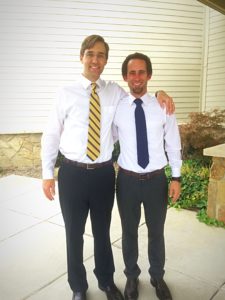 To shorten the story a bit, it was on Sunday, September 24th that I was announced at the Search Committee’s candidate. I preached a sermon titled, “Christ Alone,” on Acts 4:5–12 the following Sunday and then answered questions before the congregation for two hours in a Town Hall format. The church then voted on October 8th to call me as the next senior. The next step was to transfer my ordination into the North Texas Presbytery. I took five written exams (English Bible, theology, Book of Church order, sacraments, and church history) on October 18 and 19. On Friday, November 3, I met with the Theological Examinations Committee for a three-hour oral exam. The next day I preached a sermon before Presbytery and answered questions on the floor for about an hour. Presbytery voted to approve my ordination transfer and call to Redeemer.
To shorten the story a bit, it was on Sunday, September 24th that I was announced at the Search Committee’s candidate. I preached a sermon titled, “Christ Alone,” on Acts 4:5–12 the following Sunday and then answered questions before the congregation for two hours in a Town Hall format. The church then voted on October 8th to call me as the next senior. The next step was to transfer my ordination into the North Texas Presbytery. I took five written exams (English Bible, theology, Book of Church order, sacraments, and church history) on October 18 and 19. On Friday, November 3, I met with the Theological Examinations Committee for a three-hour oral exam. The next day I preached a sermon before Presbytery and answered questions on the floor for about an hour. Presbytery voted to approve my ordination transfer and call to Redeemer.
Yesterday my dear friend Carlton Wynne, Assistant Professor of Systematic Theology and Apologetics at Westminster Theological Seminary, preached the installation sermon. It was one of the most joyful moments of my ministerial life. I’ve known Carlton for fifteen years, and he is the human agent God used to change my theological convictions on baptism. He is also the godliest man I know, full of humility and Christlike meekness. I often say, “I want to be like him when I grow up.”
Lots to Do, Lots to Pray
If you think about it, I’d appreciate your prayers. The work at Redeemer begins in earnest today. I’m still working on my M’Cheyne dissertation for SBTS; I’m through six chapters and have four left. I take my comprehensive exams for the Ph.D. December 4–7, and it requires no small amount of study. Our six child and fifth son (Boston Charles) is due on New Year’s Eve. Our plate is rather full, but God’s grace is superabundant. All glory be to Christ our King!
An Update

My time as pastor of IDC concluded just over six weeks ago. Much has happened in the intervening time. We took our first-ever family vacation; a two-week jaunt to and from Muskegon, MI where my grandparents live. The kids loved Lake Michigan and the cool summer weather. We joined Redeemer PCA here in McKinney. Our children were baptized last Lord’s Day. I’m helping to teach a Sunday School class on the doctrine of Scripture this fall and leading a small group through Everyday Church. The shepherds and saints at Redeemer have been marvelous to fellowship and worship with.
But the overwhelming part of my life is spent in Ph.D. work. I am, for the first time, very much a full-time Ph.D. student.
Theology, Spirituality, and History
I wake up each day at 4:00 a.m. After prayer and Bible reading, I dive into my dissertation on Robert Murray M’Cheyne. I’m almost done with the second chapter. I often get asked, “What’s your thesis on M’Cheyne?” The broad answer is that I’m looking at how M’Cheyne’s Christology bears on his piety. A more narrow version is my assertion that, for M’Cheyne, personal holiness is the mature expression of love to Christ.
I initially thought of my work as a reinterpretation of M’Cheyne’s piety. I felt too few noticed the centrality of love to Christ as the animating passion in M’Cheyne’s spirituality. Yet, the more I research, the more I saw how many did mention the centrality of Christ. I’m convinced, however, that no one has yet adequately emphasized and demonstrated this focus. I tend to think it’s because most works have leaned on his private writings (diary and letters) to the exclusion of his sermons where the emphasis is undeniable. So, I now think of the project more as reorientation than reinterpretation. I’m contending that you cannot understand M’Cheyne unless you see his piety as laced with a romantic Christology. M’Cheyne’s passion for Christ humbles me every day.1
Around 10:30 a.m. I shift from the dissertation to studying for comprehensive exams. My major is Biblical Spirituality with a minor in Christian Worship. The respective study guides for comps have made it clear I need to know a fair amount of about all kinds of things in every era of church history. It often feels daunting—as it should. Studying for comps sometimes feels a climb up Mt. Everest while writing on M’Cheyne is a climb up Pike’s Peak.
Thus, from 4:00 a.m. to 3:00 p.m. I’m in the study. It’s taxing work for sure, but it has to be done.
If you ever think about it, I’d sure appreciate prayer for diligence and comprehension.
Off to the Archives
 I leave this weekend for a two-week study trip in Edinburgh, Scotland. New College Library holds M’Cheyne’s papers, and I’ll be in the Funk Reading Room all day looking at them. I’m particularly interested in a collection of sermons and some theological notebooks he kept. Lord willing, I’ll finish my work in the library a couple of days early, which will allow me to spend the last two days taking in all the incredible sights.
I leave this weekend for a two-week study trip in Edinburgh, Scotland. New College Library holds M’Cheyne’s papers, and I’ll be in the Funk Reading Room all day looking at them. I’m particularly interested in a collection of sermons and some theological notebooks he kept. Lord willing, I’ll finish my work in the library a couple of days early, which will allow me to spend the last two days taking in all the incredible sights.
If you ever think about it, I’d sure appreciate prayer for my wife and five children while I’m away.
In the Waiting Room
As I study Scripture, it seems the basic posture of the Christian life is one of waiting. We wait for God’s promises to pass. We wait for prayers to be answered. We wait for growth in grace. We wait for the conversion of friends and families. We wait for the Lord’s return.
Our family is still waiting for God to reveal what’s next for us. I won’t be a Ph.D. student much longer. We still believe Christ has commissioned me to preach the gospel and shepherd some of His sheep. We don’t know where—or when—He’ll open a call to ministry. So, we wait—imperfectly, but prayerfully and patiently.
If you ever think about it, I’d sure appreciate prayer for God to send us into a new field of pastoral labor. We are eager.
—————————————————————————————————————-
- If you follow me on Twitter, this is why M’Cheyne’s quotes are my usual tweets. ↩
A (Short) Bibliography on Covenant Baptism
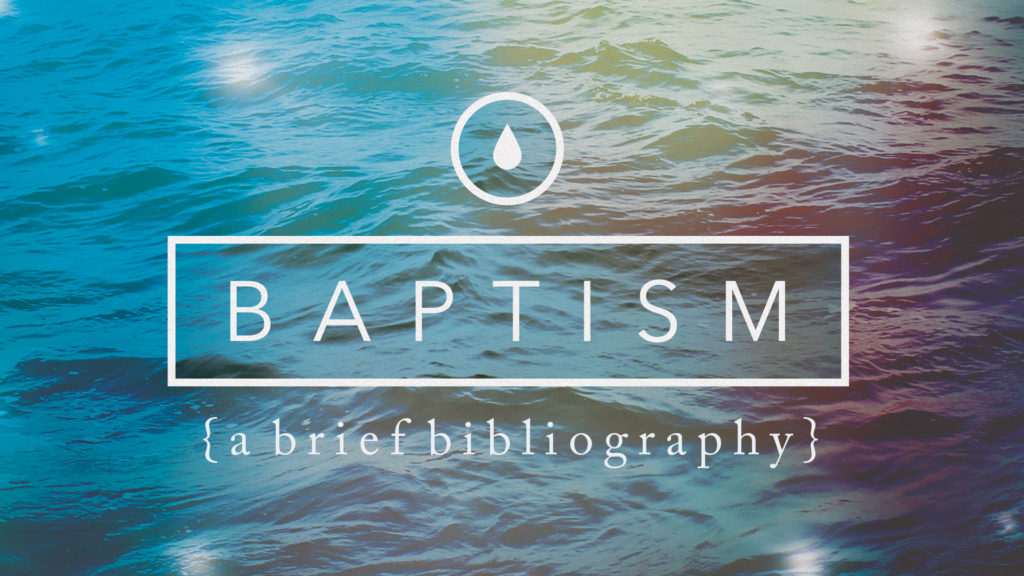
I’ve received many questions about my theological pilgrimage from “Believer’s Baptism” (credobaptism) to “Covenant Baptism” (paedobaptism). But the most common has been: “What book changed your mind?”
I’m always tempted to say, “The Bible,” because my move across the confessional waters is indeed one of sola Scripture. God’s word alone gave—and continues to give—authoritative instruction on baptism. But, it would be wrong to say the journey was one of solo Scriptura. None of us exist in such a vacuum. God places His people in the church to grow in the grace and knowledge of Jesus. He gives us teachers to guide us into and friends to help us hear the truth.
Many conversation partners joined me along the paedobaptist path. There were professors, mentors, fellow pastors, and ordinary church members. I also had a study full of books, many on the sacraments. I read every one I own on each position.
Maybe you are on a similar search for truth, or maybe you want simply to understand the covenant baptism position better. Here’s a short bibliography of what I think are the most helpful books representing the Reformed paedobaptist position.
Beginner
Christian parents need to see that their children are in the covenant. They should also understand that baptism is only the start of covenantal parenting. There’s much work to do. Beeke’s little book gives wise counsel for Spirit-dependent, earnestly-evangelistic leadership of covenant kids.
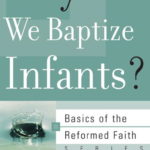 Chapell, Bryan. Why Do We Baptize Infants? Phillipsburg, NJ: P & R, 2006.
Chapell, Bryan. Why Do We Baptize Infants? Phillipsburg, NJ: P & R, 2006.
Chapell’s booklet is most useful for those unaware of the reasons why a Reformed church would baptize covenant children. Incredibly pastoral.
An excellent and accessible defense of why Reformed churches baptize children.
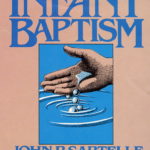 Sartelle, John P. Infant Baptism: What Christian Parents Should Know. Phillipsburg, NJ: P & R, 1985.
Sartelle, John P. Infant Baptism: What Christian Parents Should Know. Phillipsburg, NJ: P & R, 1985.
Sartelle’s booklet is similar to Chapell’s, but it a bit more rigorous in its theology.
Intermediate
I’m amazed so few mention Cheney’s work. Sure, he downplays the reality of baptism signifying union with Christ, but he’s useful on virtually every other matter. The greatest value in the book, however, is its format. William the Baptist is basically a novel, saturated with pastoral dialogue, about one 19th-century man’s path into confessing covenant baptism.
 Fesko, J. V. Word, Water, and Spirit: A Reformed Perspective on Baptism. Grand Rapids, MI: Reformation Heritage Books, 2010.
Fesko, J. V. Word, Water, and Spirit: A Reformed Perspective on Baptism. Grand Rapids, MI: Reformation Heritage Books, 2010.
If you are looking for a “One Stop Shop on Covenant Baptism,” this is it. Fesko deftly works through the historical, biblical, and theological issues.
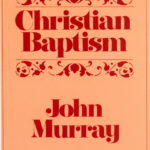 Murray, John. Christian Baptism. Phillipsburg, NJ: P & R, 1980.
Murray, John. Christian Baptism. Phillipsburg, NJ: P & R, 1980.
The book short, but dense. Murray’s skill as an exegete shines through on every page.
Advanced
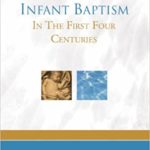
Jeremias’ goal is to “lay before the reader the historical material relating to the history of infant baptism in the first four centuries in as concrete and sober a manner as possible.” His study of the extra-Biblical evidence around the early church shows the historical rootedness of covenant baptism. He also makes valuable conclusions related to the issues of household baptisms and corporate solidarity.
When it comes to the subject of baptism, Marcel’s work is one every scholar must consider. Not many of us are scholars, of course, but that doesn’t mean we can profit from his teaching.
If you want a longer bibliography that lists representative paedobaptist and credobaptist books, try this.
The Year We Never Expected

2016 will go down as the most surprising year of my life—so far.
Leicester City won the Premier League. Great Britain left the E.U. The Cubs broke Billy Goat’s Curse. Donald J. Trump was elected POTUS 45.
And I became a Presbyterian.
It Started a Long Time Ago
In 2001, I was a fledgling Major League Soccer player looking for a church to attend. I ended up at Park Cities Presbyterian Church on the suggestion of some extended family members. I loved the liturgy and meaty theological fellowship. But I found the baptism of infants altogether strange. Then I met David Rea (PCPC’s college minister and the RUF minister at SMU) and his intern Carlton Wynne. No two men, outside of my father and grandfather, have so decisively influenced my heart and mind. D-Rea and C-Man patiently took me under their wing, discipling me in Scripture and theology. In the process they made Presbyterianism’s distinctives plausible and logical—I just wasn’t yet convinced.
Eventually, I retired from soccer and became a Student Pastor at FBC Prosper. I didn’t have too much contact with David or Carlton for a few years. In God’s kindness, we’d soon reconnect.
I joined the pastoral staff at Providence Church in 2008. Soon I reunited with my Presbyterian brethren, catching up over Tex-Mex. I remember leaving that meal and thinking, “I want to be a pastor like those guys, yet I have so much to learn.” I was twenty-four, had no seminary education, little experience, and was the only pastor on staff (at the time) outside of the lead pastor. Responsibilities I’d never asked for just kept falling on my plate. Church members kept asking me questions I couldn’t answer. I didn’t have biblical convictions in areas where I knew I should. So, I emailed Carlton and said, “Would you be interested in regularly meeting with me to talk theology and ministry?”
He was up for the challenge. And so began several years of learning from an unusually gifted man of God. He convinced me to go to RTS and mentored me through a M.A.R. degree. With each passing year, I found subtle changes being made to my theology. I was becoming more and more Presbyterian—in a confessional sense. But I still wasn’t convinced about paedobaptism.
On Matters of Membership
In 2013, we planted IDC with an “open membership” practice.1 (I now wonder if that philosophy revealed more about my true baptismal convictions than I realized at the time.) God blessed the church in thousands of ways, right from the beginning. We had everything we’d dreamed of.
And then came 2015.
Last spring, some dear Baptist brothers initiated a conversation over open and closed membership. When they found out IDC was an open membership church, they began to poke and prod. “Jordan,” they’d ask, “if you believe infant baptism is valid for membership, then why aren’t you a paedobaptist?” Other logical questions confronted me. I proceeded then to do what I always have tried to do in matters of debate, pray more and read more.
When Everything Falls Apart
Over the next few months, I couldn’t stop studying the issue. I scoured Amazon for every relevant book on baptism and proceeded to devour it within days. No longer could I listen to audiobooks while running my 50-60 miles per week. Instead, I was listening to sermons, lectures, and debates on baptism. All the while I was increasingly terrified my view of baptism had switched. The very same arguments for paedobaptism I formerly took issue with, I now found my head bouncing in assent. I no longer agreed with the arguments I’d launched against Carlton for believer’s baptism.
I fully expected that my study would kick me out as a “closed membership” apologist. I came out of it, however, a fully convinced paedobaptist.2
God moves in mysterious ways, His wonders to perform.
Into the Fog We Go
A few months ago, we let our beloved congregation know about the change. I’m now helping IDC search for my replacement (words I never thought I’d write). I’m also searching for my next ministerial post (more words I never wanted to write).
The future is foggy, but we are heading into the mist with joyful trust in God’s sweet sovereignty.
If you think about it, say a prayer for IDC and the Stone family.
——————————————————————————
- “Open membership” means we didn’t require believing individuals who’d previously been baptized as an infant to be rebaptized by immersion. “Closed membership,” the historic Baptist practice, would require baptism by immersion to join the church.” ↩
- I’d already changed my mind on matters of church polity. Emily, my wife, joined me in the process and once said, “I think God made me to be Presbyterian!” ↩
The End of *Regular* Blogging
Back in the early 1990s a popular quartet of crooners sang, “We’ve come to the end of the road.” For some reason, that swan song rings in my ears as I tell you, my faithful few readers, that my regular blogging has reached its end.
Writing to Think
I began filling up this space with ruminations on all things related to ordinary ministry back in September 2013. The main reason for starting the blog was sheer selfishness—I wanted to write. Not necessarily because I thought I had any peculiar wisdom about praying, preaching, and pastoring. In fact, quite the opposite was true: I was eight months into my first senior pastorate and needed to figure out what I should be doing. I count myself among those who write to know. It’s only when I write that I figure out the logic and look of a particular truth.
And so I wrote. And certain convictions found a home in my ministerial heart.
Now, 649 posts later, I’m putting down the pen. Why?
In Search of a Ph.D. and Permanence
My essential reasoning for stepping away from this here blogosphere is due to requirements at The Institution. If I’m ever going to write a doctoral dissertation, well, I need to start writing one. For some reason—probably due to the exhaustive nature of research writing—I gravitate more towards writing in this space than in those hallowed halls of academia. Excising blog writing means gaining back several hours each week for dissertation writing. My family rejoices at the reception of those hours for, Lord willing, that means a husband and daddy will graduate sooner. And “The M’Cheyne School of Pastoral Ministry” rejoices because someone finally gives them the academic treatment they deserve (assuming, of course, the Lord or my advisor doesn’t change my dissertation topic).
Although it’s the paramount reason, writing about 19th century Scotsmen is not the only reason for this here notification of termination. I’m longing to finish the Ph.D. and direct my writing efforts to matters of permanence.
If I’ve learned anything over the last two-plus years, it’s that blogging is the quintessence of ephemeral writing. Like vapors in the wind do blog posts fly. That’s not to say blog posts have no merit. If Mr. M’Cheyne weren’t ringing at the door each week, I’d be happy to keep up the mutterings and the musings. But, we must admit, blog posts don’t—by their very nature—have the sustaining power of books. So when I speak of permanence I speak of writing more for the printed page.
Writing with [More] Permanent Ink
I have a folder full of book projects, and the first is—you may have guessed already—that lovely dissertation. The second one may surprise you, though: an autobiography. Yes, all you misters and madams, I’m writing an autobiography! And I don’t expect any of you will see it.
A long-offered prayer of mine is that the Lord would exalt His Son in unusually powerful ways through my family. I long for the gates of hell to quake at the mention of a Stone son or daughter rising with the gospel. I want the demons to say, “Jesus I know, and the Stones I recognize” (Acts 19:15). Four years ago I began an autobiography that I hope will not only encourage generations of Stones to “go and do likewise,” but will also show them where they should “go and do otherwise.”
Should the Lord be kind to let me finish the dissertation and catch up on my first thirty-one years of life, I hope to turn then my attention to a few topics and truths burning in my soul. The best writers burn from the truth and for the truth and strive not to burn out in the labor. I don’t want to burn out here and not be able to burn there. So, I tender my resignation.
A Ghost in the House
I imagine I will still haunt this space from time to time. As much as my routine-driven mind would like to tell you how often (like at least one post a month) my ghost will show up, I’ll refrain from any assurance lest I bind my conscience and have to add an addendum to my resignation. The only parting promise I give is that in the next 7–10 days I will offer a post on “Favorite Books of 2015.” Just today I finished book #182 for the year, and I’m eager to let you now which ones might be especially helpful for ordinary pastors.
The grace of the Lord Jesus Christ be with your spirit.
To our God and Father be glory forever and ever. Amen.
Questions that Need Answering
I’m signing off the blog for a period of time once again. PhD assignments for the fall semester are reaching crunch time and need more attention than I’ve been giving them. Also, I have many theological and pastoral questions I need to wrestle with. They have nagged me for too long and must finally be confronted. Should you think about it in the next few weeks, I’d appreciate prayer.
I hope to be back around Thanksgiving.

